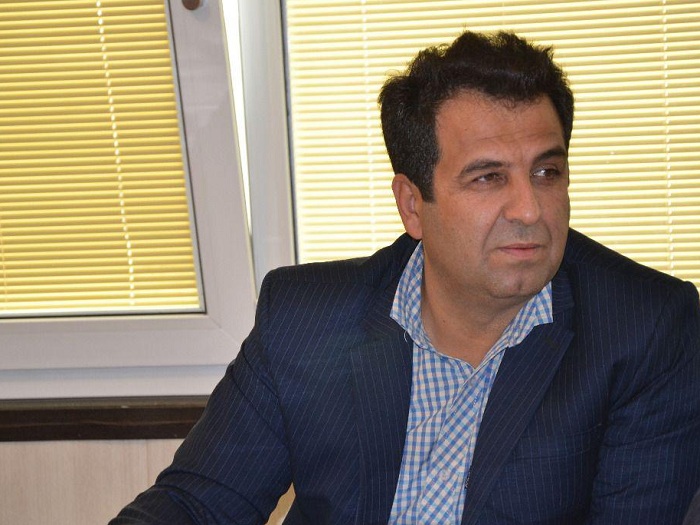Issue of four hundred and seventy mining licenses in Kurdistan

Deputy Minister of Mines and Mining Exploration of Kurdistan Organization of Mines and Trade: At present, four hundred and seven operating licenses have been issued out of which one hundred and fifty mines are active or inactive.
According to Iran's International Stone Exhibition, Mehdi Moradi, pointing out that one of the mining activities in the province is related to the exploration sector, stated: "We have been developing exploration programs for the past few years and today we are implementing it, areas We have divided the province into four zones, including Bijar, Qorveh, Saqqez and Divandarah, where we have high capacity and potential of minerals and have begun exploration.
He added that after the exploration zones were handed over to development agencies including the Geological Survey and the Imidro Organization for systematic exploration and use of new exploration technologies, the Saqez area was transferred to the Geological Survey and Mining Exploration Agency and after conducting aerial geophysical flight. Fourteen hundred and hundred kilometers linearly over three thousand and nine hundred square kilometers, seven promising gold and iron ore deposits were discovered there.
Deputy Minister of Mines and Mineral Exploration of Kurdistan Organization of Mines and Commerce said: Bijar Zone has been transferred to Iran Mines and Mining Industries Development Organization (Imidro) and after six promising discoveries PolyMetal has been introduced and is in the process of further exploration.
Moradi reiterated that the Ghorveh area had been handed over to Imidro and, after the aerial geophysical flight, about 14 promising ranges had been introduced and the process was ongoing.
Deputy Director of Mines and Mineral Exploration of Kurdistan Organization of Mines and Commerce said: Divandareh area has been transferred to Geological Survey of Iran for 4,500 kilometers but has not been able to obtain aerial geophysical permit so far. Hopefully we can identify it.
He emphasized: Kurdistan province is one of the provinces that has recently been neglected and thanks to the good discoveries in this area and the great reserves of iron, copper and gold discovered, it is being exploited on the eve of the new season. .
Deputy Minister of Mines and Mining Exploration of Kurdistan Organization of Mines and Commerce said: Currently there are four hundred and seven licenses issued out of which one hundred and fifty mines are active or the rest are inactive or being equipped.
Moradi cited the inactivity of a large number of mines in the province and said: "The largest inactive mines in the province, about one hundred and seventy mines, belong to the carcass and building materials mines. They are construction activities, so the operation of these mines has no economic justification for their miners and has stopped operating.
According to him, a boom in construction activities between 2011 and 2012 and housing projects by the Ministry of Industry, Mining and Commerce of the province to obtain building materials, they have issued licenses for, which is why they have witnessed the exploitation of a large number of building materials mines. But after the project was completed in the province, the mines were also shut down.
He stated that one of our main plans is the optimal extraction of mines and preventing the weakening of minerals in the whole mines of the province, whether metallic or non-metallic, he said: In the discussion of non-metallic minerals such as marble is planned so that waste material is not wasted. Marble mines sell their extracted carcasses to stone artisan workshops in Qorveh where they are processed, but iron ore is dominant in our discussions of metal mines.
Deputy Minister of Mines and Mineral Exploration of Kurdistan Organization of Mines and Trade mentioned: Steel chain consists of four stages of concentrate, pellet, sponge iron and steel ingot and since the primary feedstock is iron ore, so iron ore in this province is raw. It cannot be concentrated.
Moradi pointed to the gold mines in the province and said: In the gold mines debate, Kurdistan province has a high potential so that half of the country's gold is produced in this province.
He noted: For several years the Geological Survey of the country has made the necessary discoveries in the city of Saqez, which in 2012 was granted licenses for three gold mines of Saqez, but so far due to environmental issues and environmental disagreement still in this city. We have not been able to exploit this capacity.
Moradi added: Sarigoni Gold Mine of Qorveh was commissioned in 2015 and works continuously, with eleven tons of gold being extracted as well as one hundred and forty people working in the mine.
"By law, we issue exploration licenses, and the miner also invests on that license," he said.
* ISNA










